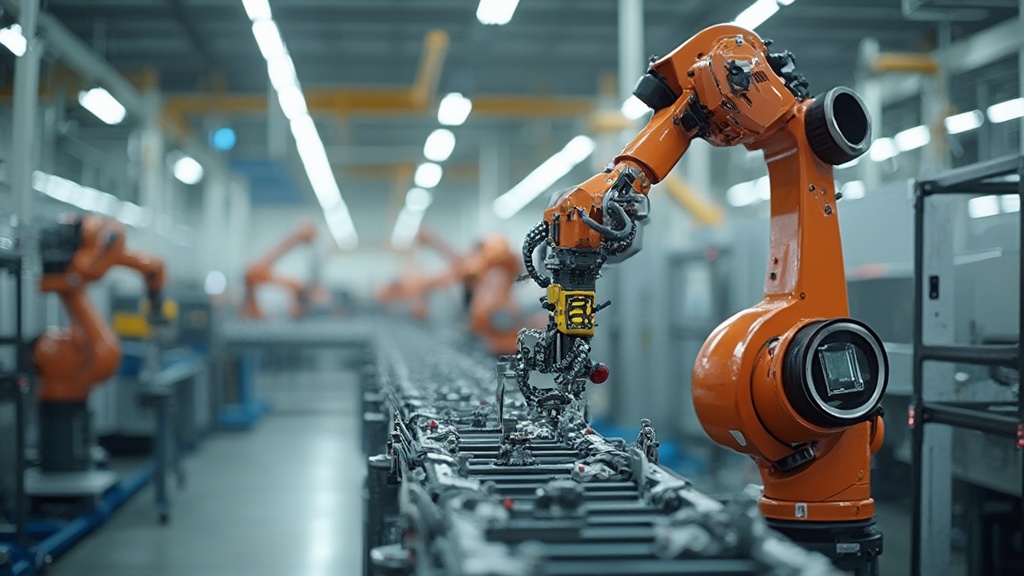Introduction
Manufacturing industries are at the forefront of a transformative era, leveraging advanced automation systems to enhance efficiency and productivity. From robotic arms in assembly lines performing precise tasks to smart factories equipped with IoT devices facilitating real-time monitoring, the integration of automation is revolutionizing production processes. Companies like Tesla and Renault exemplify this shift, utilizing automation to streamline operations, reduce labor costs, and ensure stringent quality control.
As the industry embraces AI and digital technologies, the benefits are evident in faster turnaround times, predictive maintenance, and ultimately, sustainable and profitable growth. This comprehensive exploration delves into the real-world applications of automation across manufacturing, automotive, and food and beverage sectors, highlighting the significant advantages and future potential of these technological advancements.
Real-World Examples of Automation in Manufacturing
Manufacturing sectors are progressively embracing sophisticated mechanization systems to enhance effectiveness and productivity. A prime example is the integration of robotic arms in assembly lines, which can execute repetitive tasks such as painting, welding, and packaging with exceptional precision and speed. “Tesla, for instance, leverages automation to streamline its manufacturing processes, resulting in faster turnaround times and lower labor costs.”.
Moreover, the advent of smart factories equipped with IoT devices enables real-time monitoring of machinery performance. This technological advancement facilitates predictive maintenance, significantly reducing downtime. The research team led by Chang-Hyun Kim at the Korea Institute of Machinery and Materials has developed AI technology that enhances robot work tasks, which is currently being applied to the manufacturing processes of electronic component producers.
The manufacturing sector has long been a cornerstone of global economies, continually evolving through waves of innovation—from the steam engine to the assembly line. Today, AI is driving the Industry 4.0 revolution, transforming production efficiency and the entire value chain, from supply chain management to quality control. The Global Lighthouse Network reports that over the past five years, U.S. industrial companies have generated total shareholder returns about 400 basis points higher than in the previous 15 years, thanks to AI and digital technologies.
According to the 9th Annual State of Smart Manufacturing Report, 95% of manufacturers are using or evaluating smart manufacturing technology, up from 84% in 2023. This trend emphasizes the sector’s dedication to utilizing technology for sustainable and profitable growth.
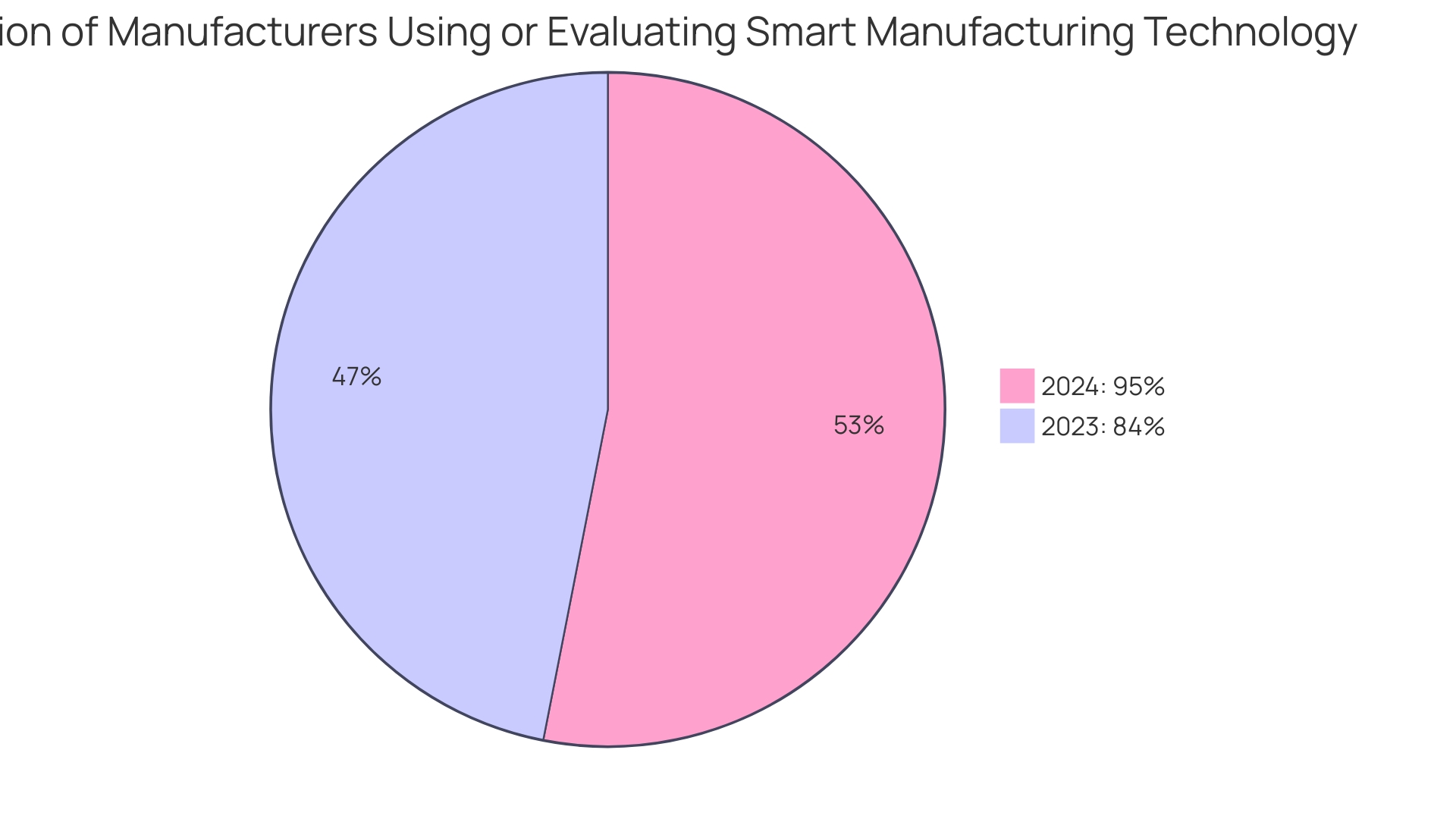
Automation in the Automotive Industry
The automotive sector has made significant progress in embracing automated systems, positioning itself as a leader in this field. Traditional quality control methods, which relied heavily on human expertise, faced limitations such as bottlenecked efficiency, inconsistency, and limited scope. To tackle these challenges, companies like Ford have integrated assembly line mechanization where robots not only assemble parts but also conduct quality checks. This has minimized human error and ensured vehicles meet stringent safety standards.
Renault’s supply chain illustrates the changes introduced by mechanization. Since 2017, Renault has digitized its processes, creating a data lake that houses comprehensive supply chain data. This foundation enabled the development of a control tower, enhancing precision in factory supply management. Ludovic Doudard, General Manager of Process Engineering Supply Chain at Renault, noted that their digitized supply chain allows for better control and efficiency.
Moreover, the rise of autonomous vehicles showcases the potential of automation to revolutionize transportation. These vehicles, equipped with advanced algorithms and sensors, promise to reshape the sector by providing safer and more efficient transport solutions. According to industry experts, staying informed about these technological advancements is crucial as they continue to evolve.
The transition towards mechanization is not just limited to large enterprises. Recent innovations in Manufacturing Platforms (MAP) and do-it-yourself (DIY) processes have democratized access, allowing small and medium-sized businesses to participate in this transformation. This has leveled the playing field, enabling broader adoption and integration of technology advancements across the industry.
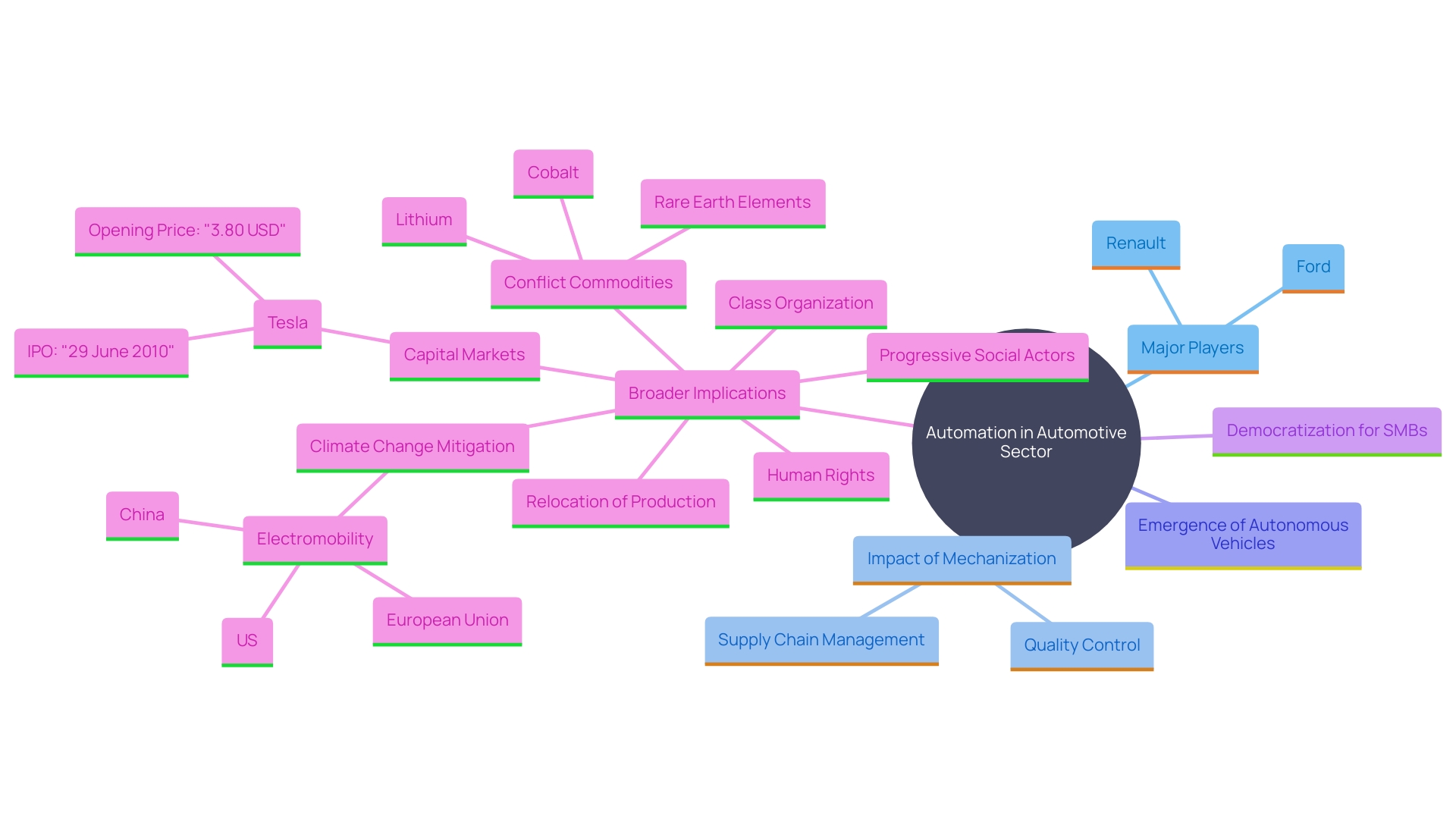
Automation in the Food and Beverage Industry
In the food and beverage sector, mechanization is transforming operations, ensuring product consistency and safety. For instance, Coca-Cola employs state-of-the-art automated bottling systems that manage every step from filling to packaging. This not only minimizes waste but also significantly increases output speed. Additionally, automation in inventory management provides real-time tracking of stock levels, preventing both shortages and overstock issues. Automated quality control systems further ensure that products meet stringent health standards, safeguarding consumer health.
The advent of Industry 4.0 has accelerated this transformation, with factories and production lines embracing digital advancements. Time series data management, as utilized by companies like InfluxDB, plays a crucial role in this era, offering unparalleled insights and operational efficiencies. This digital shift is pivotal in addressing the food industry’s challenges, such as fluctuating crop yields and high levels of food waste. In the United States alone, 30% of all food and drink is discarded annually, amounting to a loss of approximately $48.3 billion. AI-driven technology can drastically reduce these figures by optimizing production processes and enhancing sustainability.
Furthermore, professional training and certification in motion control and automated processes are becoming increasingly essential. Occurrences such as the Automate Conference provide professionals in the field the chance to remain informed about the newest trends and tactics, guaranteeing they are adequately prepared to maneuver through the swiftly changing environment of industrial technology. This education is essential for executing effective mechanization solutions that reduce interruptions, enhance safety, and improve overall performance in manufacturing and production logistics.
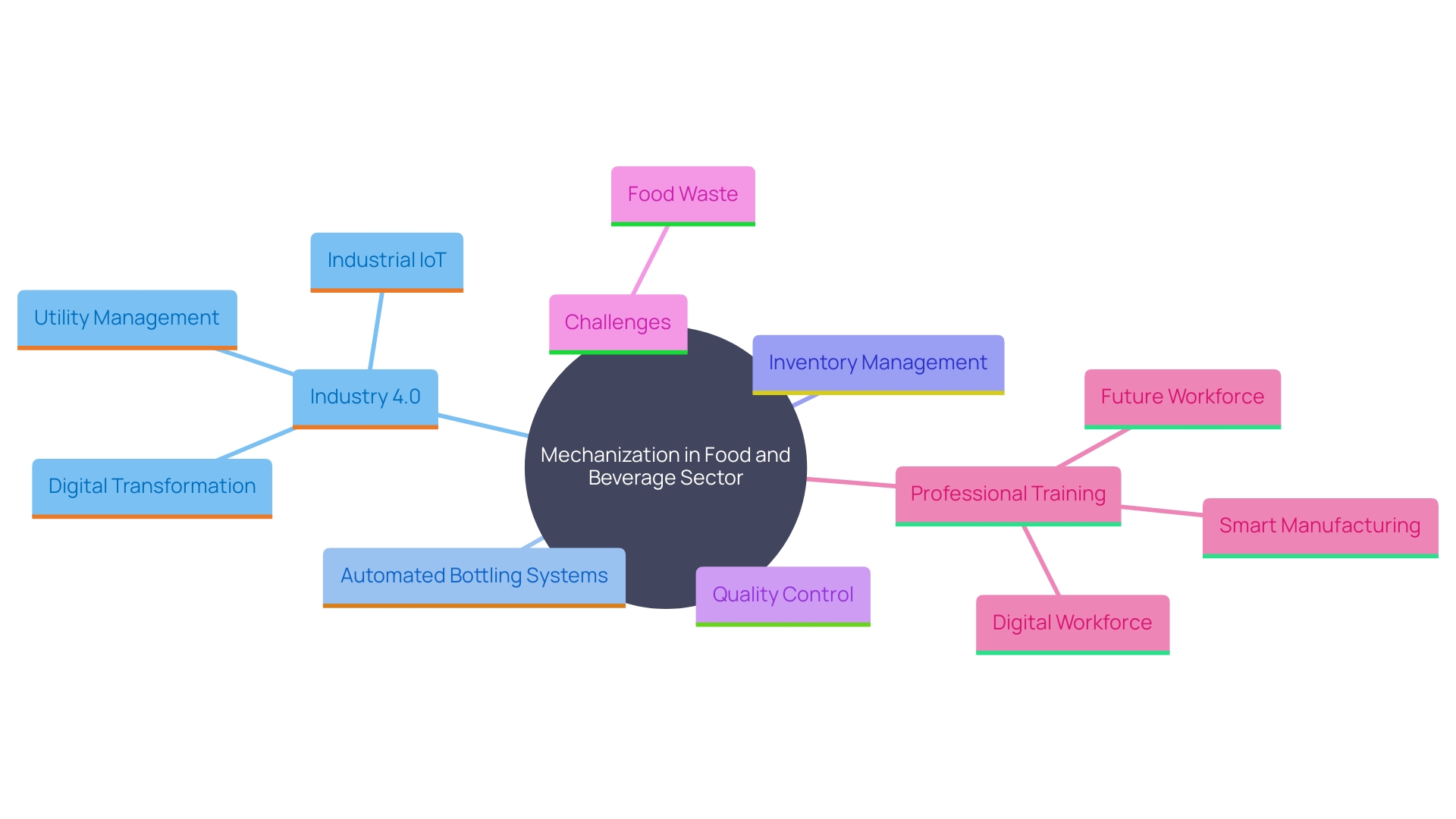
Benefits of Automation in Industries
The integration of automation systems across various industries offers numerous benefits. Firstly, significant improvements in operational performance are achieved by decreasing the time needed for repetitive tasks. For example, RobosizeME’s collaboration with Louvre Hotels Group resulted in saving 188 hours per month on rate code headers and 386 hours on rate code details, demonstrating the potential for immense efficiency gains. ‘Secondly, the use of technology reduces human error, leading to enhanced product quality and consistency, as observed in Optimotion’s mechanized solution for a water treatment chemical supplier that improved dispensing and monitoring, ensuring compliance with stringent standards.’.
Moreover, mechanization enables workers to concentrate on more strategic, high-value endeavors instead of routine tasks, promoting innovation and employee satisfaction. This shift is crucial as technological advancements in mechanization become increasingly sophisticated. Hitachi’s state-of-the-art IT products and services are known to streamline business processes, resulting in higher productivity and a better return on investment (ROI).
Automation’s impact on the economy is profound, with the International Federation of Robotics reporting a surge in manufacturing industrial robots, totaling around 3.5 million units worldwide. This growth reaches the service sector, where the use of chatbots, virtual assistants, and IoT devices is becoming widespread. ‘According to a McKinsey study, companies are expected to invest more than 25 percent of their capital in mechanization solutions in the coming years, further emphasizing its transformative role.’.
Overall, the introduction of automated processes results in cost reductions and enhanced competitiveness in the market. By embracing automation, businesses can not only enhance their operational efficiency but also drive innovation and maintain a competitive edge in a rapidly evolving technological landscape.
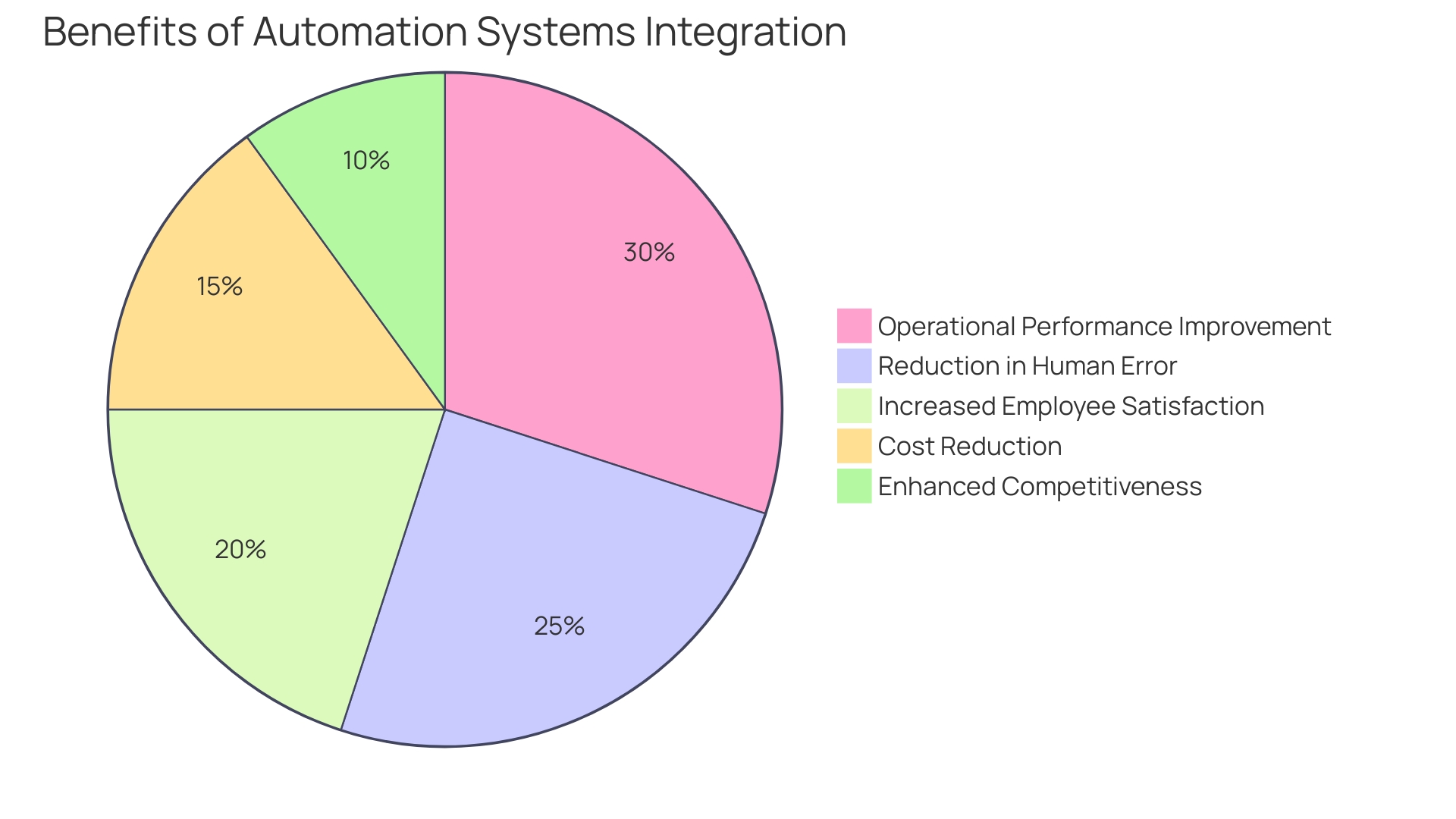
Conclusion
The integration of automation across various industries marks a significant shift towards enhanced efficiency and productivity. In manufacturing, the use of robotic systems and IoT devices has streamlined operations, allowing for real-time monitoring and predictive maintenance. Companies like Tesla and Renault exemplify how automation minimizes labor costs while ensuring quality control, driving substantial shareholder returns.
The automotive sector has embraced automation not only in assembly lines but also in quality control processes. This transformation has reduced human error and improved safety standards, showcasing how technology can elevate operational capabilities. Additionally, the democratization of automation through platforms accessible to small and medium-sized enterprises highlights its widespread potential.
In the food and beverage industry, automation has revolutionized production processes, ensuring consistency and safety while addressing significant challenges like food waste. Real-time inventory management and automated quality control systems are just a few examples of how technology is reshaping this sector. Continuous professional development in automation is crucial for industry professionals to keep pace with these advancements.
The benefits of automation are clear: improved operational efficiency, reduced human error, and the ability for employees to engage in more strategic tasks. As industries increasingly adopt automation solutions, they not only enhance their competitiveness but also foster innovation and sustainability. Embracing this technological shift is essential for businesses aiming to thrive in an evolving landscape.

